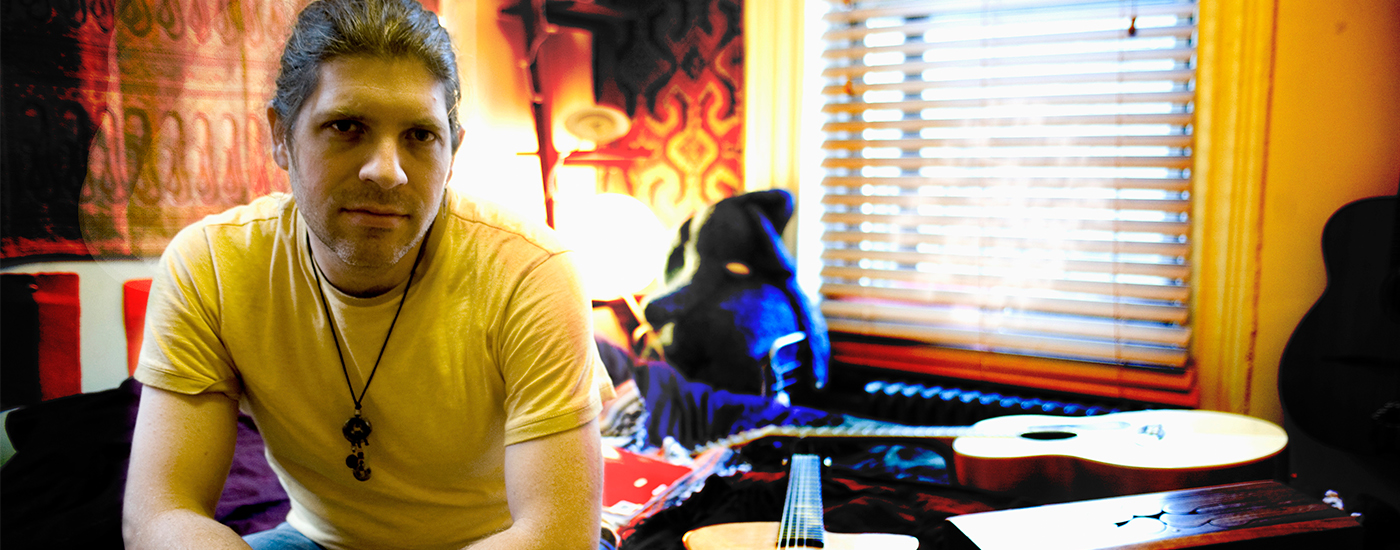French guitarist Stephane Wrembel’s sound is instantly familiar, especially its clear resemblance to Django Reinhardt (1910-1953), one of the greatest guitar players of all time. Although Reinhardt is recognized for his contributions to European or gypsy jazz, Wrembel doesn’t care for those titles.
“I never use the word(s) gypsy jazz,” he says, “because I know what jazz is: It’s an American type of music based on improvisation. This is definitely not jazz. And gypsy is like saying ‘European.’ But there are different kinds of gypsies. It’s not gypsies who play flamenco. That’s not what it is. Django’s music is unique, completely different. And Django is the grandmaster: He is like Bach on guitar.”
Wrembel has extensively studied the musical style, including visits to gypsy camps throughout the French countryside. “Music is always the soundtrack for something,” he says. “For gypsy music, you need to know the people: how they live, how they do it, their environment.”
Wrembel will make his third visit to the Nelson Odeon, 4035 Nelson Road, Nelson, with two separate weekend performances. On Friday, Nov. 13, 8 p.m., the guitarist will focus on Reinhardt’s music. His 8 p.m. show on Saturday, Nov. 14, will feature his own compositions.
Also on Saturday, Wrembel will present a 3:30 p.m. workshop, “Django Reinhardt Jazz Guitar Technique,” which will not be for just guitar players. “I’ll talk about ways to improvise and to practice,” he emphasizes. “I’ll also talk specifically about rhythm in that style and people will improvise. There will be something for everyone on every level, any instrument.”
Wrembel was already a professional working musician with his own music school in France before he attended Boston’s Berklee College of Music, where he studied jazz and Indian music. He graduated summa cum laude in music performance in 2002.
“I was there gathering information, not music,” he says. “Information is not alive (like music). In university, you don’t really learn anything. You get information. It’s only when you are in reality that you learn. With the gypsies in the camps, you learn music that is related to life. That’s a completely different thing.”
When Wrembel moved to New York City following graduation, the first thing he did was perform Reinhardt’s music. “It (the music) was a living thing,” he says. “I had been with the gypsies for so many years. No one was doing that (kind of music) in the states then, so I chose to start with that.
“I started practicing more stuff, going out, composing and really using that life experience to give birth to something true to my whole experience: being French, an immigrant. I had studied so many artists and styles. The whole thing needed to blend and become something meaningful and real.”
The result is a series of albums that experiment with the Django style: Introducing Stephane Wrembel (2001; reissued in 2010), Barbes-Brooklyn (2006), Gypsy Rumble (2008), Terre des Hommes (2008), Bistro Fada (2011), Origins (2012) and Dreamers of Dreams (2014). Wrembel was also featured on the soundtrack for director Woody Allen’s 2008 film Vicky Cristina Barcelona and he composed the theme track for Allen’s 2011 film Midnight in Paris.
Wrembel now tours the world to share his music and Reinhardt’s. When he’s not traveling, he’s often playing in New York City with his band, who will accompany him at the Nelson Odeon. His one regret is not having more time to practice.
“I don’t practice as much as I want to,” he says, “but I practiced a lot for many years. Music is like martial arts: There are different layers of consciousness. The masters of Indian music play 15 hours a day. They get into a trance mode. If you don’t practice enough, you can’t get into that mode. If you think about money and material things too much, you can’t get into that mode. Music is a spiritual experience. When you play, you penetrate the different layers.”
Reinhardt’s guitar gifts become even more impressive in the context of the musician’s daunting physical challenges. The guitarist suffered severe burns in a 1928 fire that left his fourth and fifth fingers paralyzed, forcing him to use only his index and middle fingers on his left hand for solos.
“What’s puzzling with Django is not the hands,” Wrembel says of Reinhardt’s injury. “It’s more the rhythms he used. They were highly unconventional. He was that much of a genius, that even with the two little fingers, we can study all the positioning on the guitar because of him. It’s his timing and everything. It’s more than the fingers. That’s a minor factor in his music.”
Tickets for Stephane Wrembel are $25 per night ($20 for students), $40 for both nights ($35 student), $75 for the Saturday workshop ($60 student) and $90 for workshop and both shows ($75 student). Visit nelsonodeon.com for details.
Wrembel's Django-Style Jazz to Fill The Odeon

By
Posted on

Guitarist Stephane Wrembel keeps the stylings of Django Reinhardt alive and well








